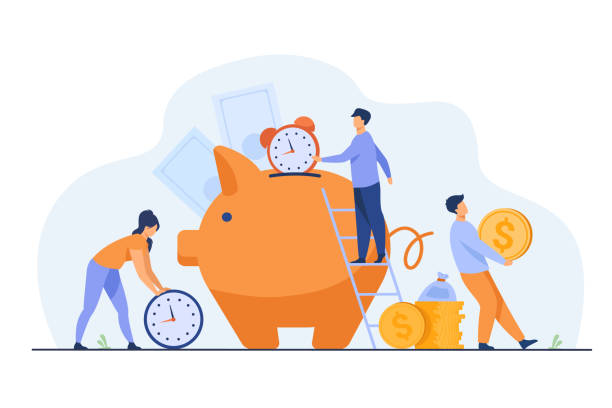Providing Debt Recovery Excellence In Lucknow, WeVaad
Take charge of your debt recovery journey in Lucknow with WeVaad’s innovative legal strategies. Transform unresolved debts into triumphant successes under our expert guidance.
Connect With Us Now
At WeVaad, we help you navigate the debt recovery process efficiently
Step 1: Initiating Your Journey: Take the first step in your debt recovery process by partnering with us. We embark on the path toward resolving your debt-related concerns, dedicating our expertise to your cause.
Step 2: Charting the Resolution Course: Strategically map out the course to resolution. Our collaborative efforts focus on outlining effective approaches and methods to navigate challenges and reach a satisfactory outcome.
Step 3: Guided Neutrality: Benefit from impartial guidance as we navigate your case. Our neutral stance ensures fairness, providing an unbiased perspective that aids in making informed decisions during the resolution process.

Step 4: Virtual Deliberations and Documentation: Engage in meaningful online discussions to address your concerns. Through virtual platforms, we facilitate constructive dialogue while meticulously documenting each step, ensuring transparency and clarity throughout.
Step 5: Online Judgment: Obtain your resolution through efficient virtual channels. We deliver the outcome online, streamlining the process for your convenience and allowing you to receive the results promptly.
Step 6: Executing the Award: Once the resolution is awarded, we work collaboratively to ensure its effective implementation. Our dedication extends beyond the resolution itself, focusing on executing the awarded decisions with precision and care.
Debt Collection Legal Recourse process
- Initiation and Agreement: Kickstart the arbitration process by initiating discussions and formalizing the agreement that outlines the terms, rules, and objectives of the arbitration.
- Arbitrator Selection: Thoughtfully and deliberately select an arbitrator, ensuring their expertise aligns with the nature of the dispute, and their neutrality guarantees a fair resolution.
- Submission of Documents: Assemble and provide essential documentation, evidence, and statements that bolster your arguments and contribute to the clarity of the case presented.
- Preliminary Virtual Symposium: Participate in the preliminary virtual discussions orchestrated by the arbitrator. These initial conversations lay the groundwork, address procedural matters, and set expectations for the main arbitration process.
- Main Virtual Dialogue: Actively engage in the primary virtual exchange, where both parties present their arguments, provide counterpoints, and respond to inquiries from the arbitrator. This comprehensive dialogue forms the core of the arbitration process.
- Upholding the Award: Adhere diligently to the arbitration decision, ensuring its implementation and compliance. Upholding the awarded resolution is essential to maintaining the integrity and effectiveness of the arbitration process.
- Conclusion and Closure: Bring the arbitration process to a conclusive end, signifying the closure of discussions, agreements, and the resolution of the dispute. This final step ensures clarity and resolution for all parties involved.
- Voluntary Initiation: The decision to engage in mediation is entirely voluntary, demonstrating a willingness from both parties to explore amicable solutions outside the formal legal process.
- Guidance from a Neutral Mediator: A neutral and skilled mediator guides the process, ensuring unbiased support and facilitating constructive communication between the disputing parties.
- Mediation in Progress: As mediation unfolds, multiple sessions occur, providing continuous opportunities for discussions, negotiations, and the exploration of potential resolutions.
- Illuminating Perspectives: Mediation encourages participants to consider diverse viewpoints, broadening their understanding of the dispute’s nuances and contributing to a more informed decision-making process.
- Open Conversations and Confidential Dialogues: During mediation, open conversations take place in a confidential setting. This environment fosters honest dialogue, allowing parties to express their concerns and explore potential solutions without fear of external exposure.
- Crafting Collaborative Solutions: Collaborative efforts are emphasized, enabling parties to jointly create solutions that accommodate their interests and needs, often leading to more sustainable and customized resolutions.
- Bound by Commitment: Agreed-upon outcomes reached through mediation carry a commitment from both parties to adhere to the terms they have collectively set, solidifying the resolution’s integrity.
- Preserving Confidentiality: The confidentiality of mediation discussions is upheld, ensuring that sensitive information shared during the process remains private, which often encourages participants to be more forthcoming and candid.
- Voluntary Engagement: Make a deliberate choice to engage in conciliation, demonstrating a shared commitment from both parties to seek a resolution without imposing any obligation.
- Facilitator Appointment: Select a skilled conciliation facilitator, someone impartial and qualified, who will guide the process, ensuring that discussions remain productive and focused.
- Initiating the Conciliation Process: Launch the conciliation process, formally beginning the structured discussions designed to address differences, find common ground, and achieve a mutually satisfactory outcome.
- Exploring Diverse Perspectives: Engage in conversations that encourage the exploration of diverse viewpoints, allowing each party to express their concerns and experiences, fostering a deeper understanding of the issue at hand.
- Discovering Common Ground: Delve into the discussions with the aim of uncovering shared interests and points of agreement, creating a foundation upon which a resolution can be built.
- Foraging Collaborative Resolutions: Work together in a collaborative manner to actively seek solutions that align with the interests and needs of both parties, promoting a sense of joint ownership over the outcome.
- Embracing a Binding Accord: Once an agreement is reached, acknowledge its binding nature, solidifying the commitment to honor the terms and conditions that have been collectively established.
- Ensuring Compliance: Maintain the integrity of the conciliated solution by ensuring that both parties uphold their commitments, thereby reinforcing the credibility and effectiveness of the process.
- Safeguarding Confidentiality: Uphold the confidentiality of all conciliation proceedings, providing a secure environment where parties can freely discuss their concerns, fostering open communication without fear of public exposure.
Streamlined Conflict Resolution via Tiered Dispute Resolution Clause in Lucknow
A tiered dispute resolution clause offers a structured path for contract dispute resolution, including negotiation, mediation, conciliation, arbitration, and litigation, promoting collaboration and minimizing adversarial approaches.
The Tiered Dispute Resolution Clause: Paving Lucknow's Path

In disputes, parties commit to a tiered resolution process:
- Negotiation: Seek amicable settlement.
- Mediation: Involve a neutral mediator.
- Arbitration: Opt for binding arbitration.
- Litigation: Resort to legal action if necessary.
Expert Legal Guidance for Unsettled Debts in Lucknow with WeVaad
Connect with WeVaad’s esteemed legal experts to liberate yourself from unpaid debts in Lucknow. Embark on a transformative journey towards financial rejuvenation and stability under their experienced guidance.
